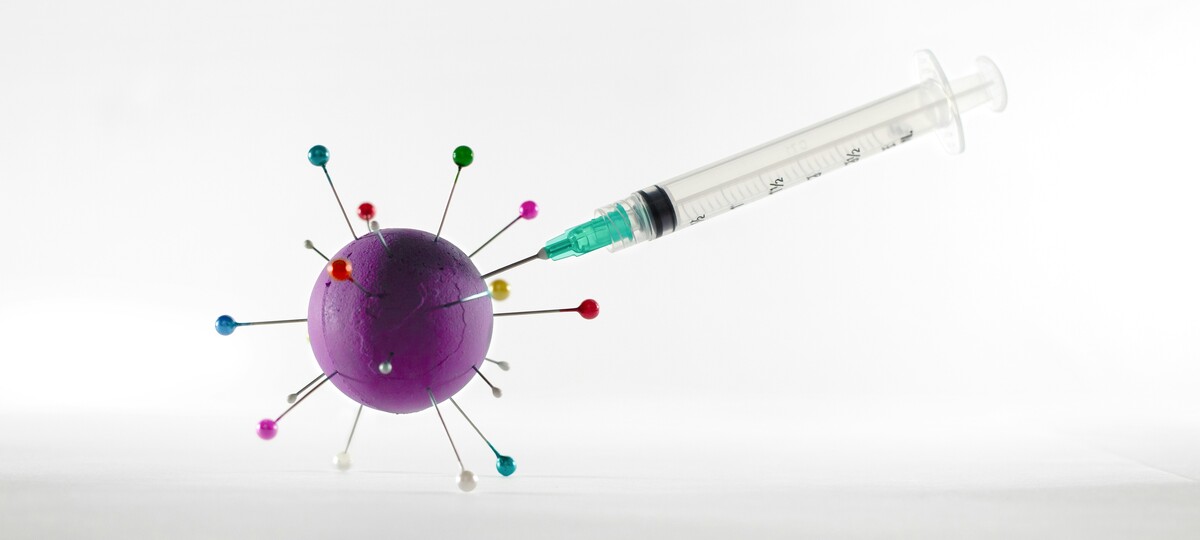RFK Jr.'s Vaccine Crusade Threatens Public Health

The Controversial Shift in Vaccine Research Policy
Robert F. Kennedy Jr. has been a vocal critic of vaccines, and his recent actions have raised significant concerns among public health experts. Despite his occasional statements suggesting support for safe and effective vaccines, his overall approach appears to be aimed at undermining the credibility of vaccine research. One of the most notable examples of this is the decision by the Department of Health and Human Services (HHS) to cancel $500 million in mRNA research. This move marks a dramatic shift from previous administrations, including that of President Donald Trump, who once referred to mRNA technology as a "modern-day miracle."
The HHS secretary, who previously stated that no vaccine was "safe and effective," now claims to support "safe, effective vaccines." However, the cancellation of 22 research projects focused on various infectious diseases, including influenza and respiratory syncytial virus, suggests a broader agenda. These projects were not limited to COVID-19 but also included studies on other critical health issues. The decision raises questions about the rationale behind such a move, especially considering that new research often leads to unexpected discoveries and innovations.
Kennedy argues that mRNA technology poses more risks than benefits for these respiratory viruses. Yet, he provides little evidence to support this claim. The technology itself, which uses fragments of genetic code to prompt the body's immune system to defend against infection, has shown promise in various applications. However, RFK Jr. seems intent on casting doubt on its safety and effectiveness, despite the lack of scientific backing for his assertions.
The Impact on Public Health and Scientific Integrity
The cancellation of these research projects could have far-reaching consequences for public health. By reducing funding for mRNA research, the administration may be limiting the potential for future breakthroughs in treating infectious diseases. This decision also raises concerns about the integrity of the scientific process. If research is being suppressed due to ideological reasons rather than scientific merit, it could erode public trust in medical advancements.
Kennedy's approach to vaccine policy is inconsistent. Earlier, he advocated for more research to understand vaccines before recommending them. Now, he is pushing for less research, which creates a pattern of contradiction. This inconsistency undermines his credibility and highlights the challenges of navigating complex public health issues with a polarized perspective.
One example of this inconsistency is Kennedy's visit to Texas, where he met with two doctors who claimed to have treated measles using alternative methods. While these doctors may have had good intentions, their approaches lack scientific validation. There is no substantial evidence to support the use of aerosolized budesonide or clarithromycin for treating measles, and many medical professionals consider such treatments to be pseudoscience. Additionally, one of the doctors involved was disciplined for inappropriate medication use, further calling into question the legitimacy of their methods.
Kennedy's endorsement of these unproven treatments reinforces his stance against conventional medicine, even when it comes to well-established practices like vaccination. His history of making unfounded claims, such as linking the polio vaccine to cancer and falsely associating autism with vaccines, further complicates his credibility. These past actions suggest that his primary goal is not to promote public health but to advance a personal agenda.
The Role of Advisory Committees and Public Trust
Another controversial move by Kennedy was the dismissal of the entire Advisory Committee on Immunization Practices and replacing it with individuals aligned with his views. He justified this action by claiming that the previous committee members had conflicts of interest, implying they were too closely tied to pharmaceutical companies. However, this reasoning is flawed, as advisory committees need to include experts who understand the industry to provide informed guidance.
Public trust in health institutions has been a major issue in recent years, and Kennedy's actions may exacerbate this problem. While some people distrust public health agencies, others place their faith in figures like Kennedy, despite his questionable track record. This dynamic highlights the importance of transparency and accountability in public health policy.
Despite the controversy surrounding Kennedy's policies, it is important to recognize that the development of vaccines, including those based on mRNA technology, is a complex process. While they are not without risks, they have also played a crucial role in mitigating the impact of pandemics. The challenge lies in balancing innovation with caution, ensuring that public health measures are both effective and ethically sound.
In conclusion, the decisions made by the HHS under Kennedy's leadership raise serious concerns about the future of vaccine research and public health policy. As the debate over vaccines continues, it is essential to prioritize scientific integrity and public trust over ideological agendas.
Post a Comment for "RFK Jr.'s Vaccine Crusade Threatens Public Health"
Post a Comment